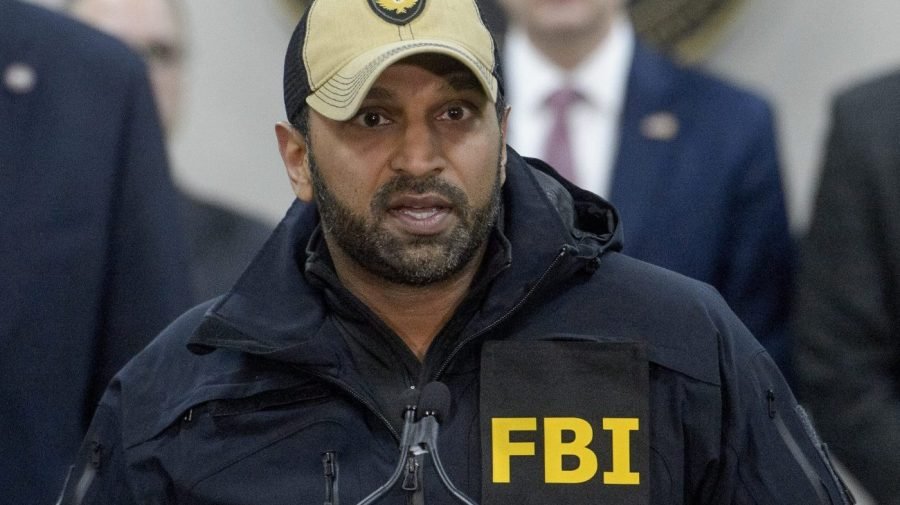
I have been supportive of FBI Director Kash Patel’s efforts to reform the bureau, but his latest proposal — lowering recruiting standards for new agents — may be a bridge too far.
Waiving the long-standing requirement that new agents possess a college degree is not just lowering the bar — it risks damaging both the bureau’s effectiveness and its reputation. As the New York Times recently reported, the plan appears to be part of a broader effort to shift the FBI’s focus from countering national security threats to more traditional crime-fighting. That is not only short-sighted but dangerously impulsive.
During my 28-year career there, and beyond, the FBI was regarded as the world’s premier law enforcement agency. It set itself apart by recruiting men and women with advanced skills, intellect, integrity and judgment.
Eliminating those standards would inevitably create two classes of agents. Veteran agents who meet the traditional requirements would view those hired under relaxed standards as operating in a different league altogether. Such a division would corrode morale and undermine teamwork.
Reducing new-agent training at the FBI Academy from 18 weeks to eight would only widen the disparity of knowledge and competence. How is a supervisor to assign cases when some agents are trained professionals with proven qualifications and others lack both the education and the foundational skills that the bureau has historically required?
Once the bureau resumes the complex investigations it built its reputation on — major financial crimes spanning multiple jurisdictions and often across international boundaries — agents without the proper foundation will be in over their heads.
The FBI does not simply chase bank robbers; it unravels complex fraud schemes, money laundering, espionage, cybercrime and terrorism. That demands both education and experience. It also demands public trust. The FBI remains the only agency specifically charged with investigating public corruption at the local, state and federal levels — highly sensitive operations requiring seasoned judgment.
I learned early how demanding the FBI’s standards were. In 1980, fresh out of college with a political science degree, I stopped by the Seattle field office to ask what it would take to join. The recruiter didn’t mince words: With only a liberal arts degree and no significant work experience, I was not eligible even to apply. At that time, applicants like me — white males — needed a law degree, an accounting degree or at least three years of full-time professional experience, preferably with supervisory responsibilities. The message was clear: The bureau was selective, and the standards were high.
Those standards are still posted on the FBI’s website. Applicants must have a bachelor’s degree and two years of full-time professional work experience, or an advanced degree and one year of such experience; a valid driver’s license; the ability to obtain a Top Secret security clearance; physical fitness meeting bureau requirements; and eligibility to apply between ages 23 and 36 (with exceptions for veterans and certain federal employees).
Those are the minimum requirements just to apply. To be hired, candidates must also pass written exams, structured interviews, a thorough physical evaluation and an exhaustive background investigation. It is an intensely competitive process, with only 3 to 6 percent of applicants offered one of the coveted slots in a new-agent class at Quantico.
When I finally arrived at the FBI Academy three years later, my class included working accountants, practicing attorneys, police officers and military veterans — most in their 30s and already hardened by years of professional and life experience. That was by design — the bureau wanted maturity, judgment and proven skills. Today’s average age for new agents is 29, not far from that mark.
In contrast, most other federal law enforcement agencies that hire criminal investigators under the 1811 job classification — including the Secret Service, DEA, ATF, U.S. Marshals Service and Homeland Security Investigations — require at least a bachelor’s degree. Some allow limited waivers based on specialized professional experience. If the FBI were to move forward without any educational requirement, it would be the only agency in the 1811 family to do so. Combined with a laughable summer camp-length training, the inevitable decline in prestige would be devastating.
It is an honor and privilege to serve as an FBI special agent. It’s also a profound responsibility. Agents are granted extraordinary power, authority and autonomy. Unless you’re a victim of a crime, it’s never a good day when you get a call or visit from the FBI. FBI investigations are confidential and rarely, if ever, disclosed to the public, especially when there is no prosecution. Agents don’t “leak” to the media. The FBI does not make prosecutive decisions; when there is an arrest, indictment or a plea, the Justice Department issues a statement.
FBI agents follow the evidence wherever it leads and diligently document their findings. They swear out affidavits before judges, signing their own names. It’s personal — because each agent represents the FBI and carries the responsibility for upholding its reputation.
In short, FBI agents play by the rules. Being an agent does not define them as individuals, but those who choose to become agents define the FBI.
That commitment to integrity and excellence is precisely why the bureau earned its reputation as the most highly regarded law enforcement organization on the planet. Weakening those standards would not simply make it easier to get through the door, it would make it harder for the FBI to do its job, and harder still to maintain the trust of the American people.
Mark D. Ferbrache was an FBI agent from 1983 to 2011 specializing in white-collar criminal investigations. He later worked in the bureau’s National Security Division and the CIA’s Counterterrorism Center. He is a contractor in the U.S. intelligence community.
